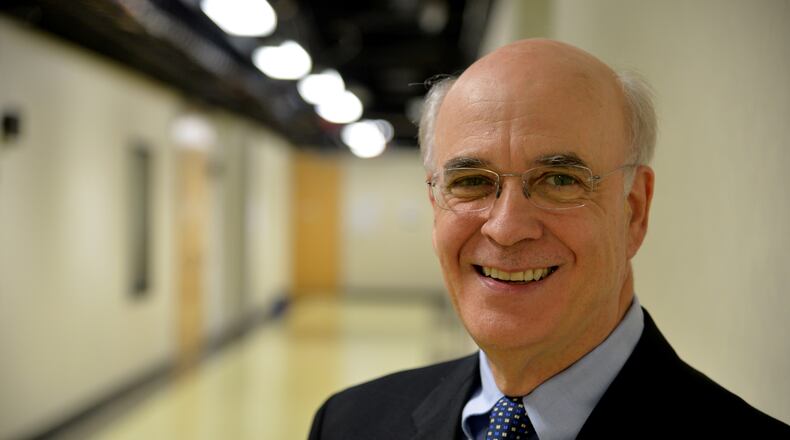The hazard of journalism, of course, is that it is often not enough to report on what a candidate actually said. The perfect reporter will also report what the candidate actually meant to say when he said it the first time.
Earlier this month, we told you of a lengthy radio interview given by Jim Barksdale, the Democratic candidate for U.S. Senate, in the studios of WUOG in Athens. Barksdale had been channeling Bernie Sanders, and so income inequality and Washington's laissez-faire attitude toward Wall Street was on his mind:
"This is basically a reckless policy. And that's basically what I've been saying – that the policies that we've been following that led to the largest inequalities in this country since the '20s – and capitalism just doesn't work. It's not just that the people suffer from that. Capitalism just doesn't work very well. You can't grow when wages are declining. You can't keep growing when people keep getting more in debt…."
In Sunday's column, I posited that the phrases, "Capitalism just doesn't work" and "capitalism just doesn't work very well" might have been somewhat inartful – especially in a general election context.
Fortunately, Barksdale had some Monday morning air time on GPB Radio's "On Second Thought" with Celeste Headlee, which gave him an opportunity to reassure voters that he wasn't advocating revolution. Said Barksdale:
"I am in capital…Absolutely, I believe in capitalism. So that's a complete misquote. And what I'm saying is that when all the income is going to the top 1 percent, or even less, and wages are declining for working Americans -- you cannot have an economy that grows when wages are declining.
"…We have lived through these periods before, and this is what happened in the '20s, where all the income was going to the big trusts and big corporations at the time. And as Will Rogers said, we were so capable at mass production that we had massed produced ourselves out of jobs. And this is what brought on the Great Depression.
"You have to have some distribution of that income so that the workers share in the productivity that has been obtained, both by trade and by technology…."
Barksdale's Monday radio gig followed a Friday appearance in the same studio by his Republican rival, incumbent U.S. Sen. Johnny Isakson.
The Democrat went after Isakson for his support of President George W. Bush’s decision to invade Iraq, and accused the incumbent – based on Isakson’s Friday statements -- of wanting to invade Ukraine as a nation under protection of Article 5 of NATO.
(The clarification issued by the Isakson camp this morning: "Senator Isakson was making the point that, in that part of the world, we would come to the defense of a NATO ally under Article 5, and we should have acted similarly for our ally Ukraine given our commitments and their strategic importance.")
Said Barksdale:
"In the same interview, he put forward that we ought to put ground troops in Syria. So he hasn't learned the lessons of Iraq."
About the Author
The Latest
Featured




